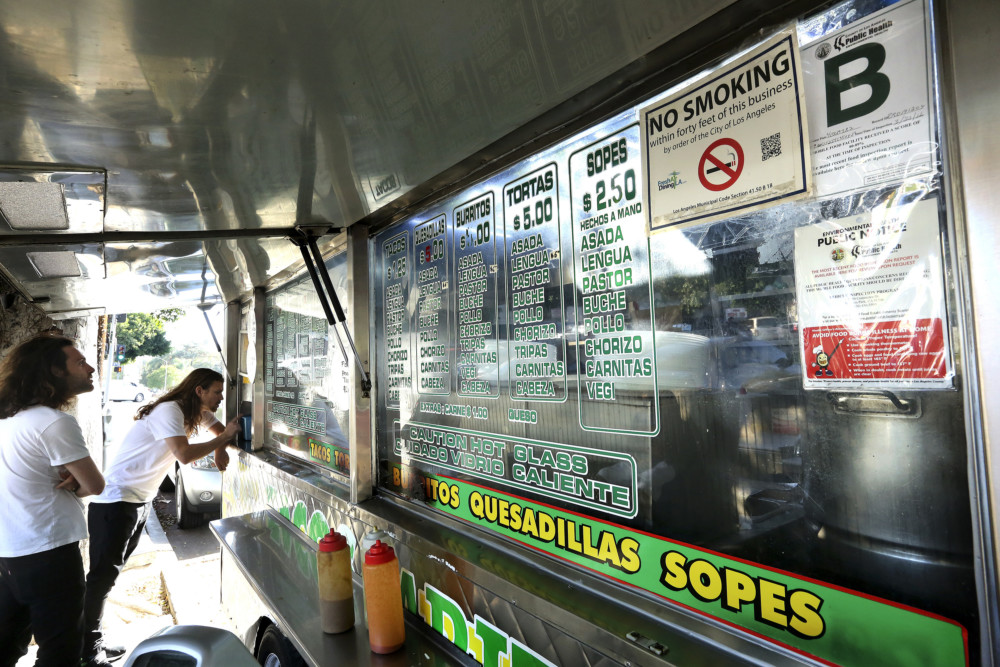EDITORIAL
Chicago Tribune
WWR Article Summary (tl;dr) A Chicago judge ruled against Laura Pekarik, owner of the “Cupcakes for Courage” food truck, who argued that the rules imposed on Chicago food trucks were unconstitutional. The judge said the ordinance balances the needs of restaurants and food trucks.
Chicago
Status quo wins.
Entrepreneurs lose.
That’s the gist of a ruling from a Cook County judge — a crushing blow to Chicago food truck owners who have been trying to navigate tough City Council-imposed restrictions since 2012.
The ruling is likely to chase many food trucks to the suburbs and beyond, leaving hungry Chicagoans with fewer — and less interesting — lunch options.
This is a problem that didn’t have to be.
The City Council in 2012 passed an ordinance allowing food trucks to operate in Chicago, at least 10 years behind other major venues. The ordinance restricts where the trucks can station themselves and requires them to carry GPS tracking devices so the city can monitor their whereabouts and hours of operation. City Hall essentially said to the portable purveyors: Yes, you may sell your tamales on public streets, as long as you’re not taking business away from nearby brick-and-mortar restaurants. Got it?
Like their counterparts in Los Angeles, New York and elsewhere, Chicagoans greeted the food trucks with enthusiasm. But traditional restaurants were threatened by the blooming food industry trend. Want a gourmet taco or a lobster roll from a street vendor? Boom. The rise of food trucks.
And boom, the hammer of Chicago government. Rather than encouraging competition and free choice, the city put its thumb on the scale to advantage restaurants. What other private enterprise is required to install tracking devices or to locate more than 200 feet from another business?
Circuit Judge Anna Helen Demacopoulos ruled against Laura Pekarik, owner of the Cupcakes for Courage food truck, who argued that the rules were unconstitutional. The judge said the ordinance balances the needs of restaurants and food trucks, and that the city has a responsibility to regulate the food trucks to limit street congestion.
The food truck industry says it will appeal the ruling. But the truth is, the damage has been done. Many of the surviving trucks are affiliated with established restaurants or chains, while independent entrepreneurs have been suffocated by the regulations. Gabriel Wiesen, head of the Illinois Food Truck Owners Association, says 100 trucks have gone out of business in the last five years.
Chicagoans who find that hard to swallow should give their alderman an earful. The food truck ordinance might not be unconstitutional, but it’s certainly wrongheaded. The City Council needs to revisit those rules.
Government shouldn’t be in the business of protecting traditional restaurants from competition.
It should be up to paying customers to decide whether they want their tacos, cupcakes, lobster rolls and fried chicken served at the curb on Wacker Drive, or at a dimly lit table with a glass of Cabernet and a waitperson hovering nearby.
That choice belongs to the consumer. The city should stay out of it.
Join the discussion on Twitter @Trib_Ed_Board and on Facebook.
___
(c)2016 the Chicago Tribune
Visit the Chicago Tribune at www.chicagotribune.com
Distributed by Tribune Content Agency, LLC.














































































































































































































































































































































































